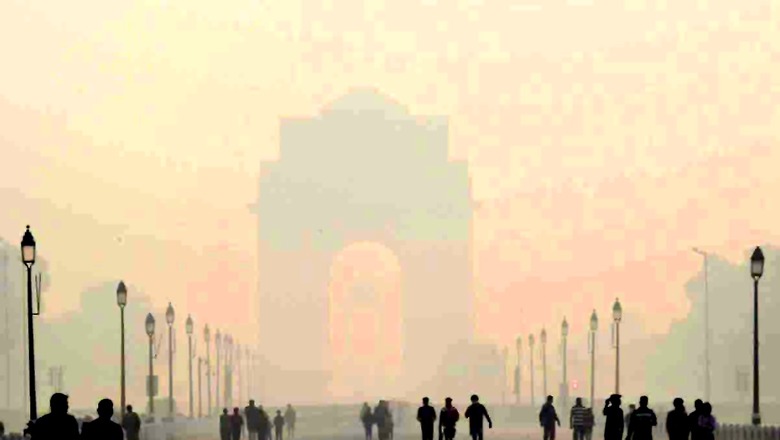
views
The central panel monitoring Delhi’s air pollution swung into action on Tuesday to tackle stubble burning by farmers in Punjab and Haryana, days after the Supreme Court rapped it for its failure to control this practice in the neighbouring states.
The Commission for Air Quality Management (CAQM) has set up “flying squads” to monitor stubble, or crop residue, burning by farmers. Covering a total of 26 districts — 16 in Punjab and 10 in Haryana — these teams will work with state-level anti-pollution bodies.
Stubble burning is one of the main contributors to the toxic smog that envelops Delhi and the national capital region (NCR) in the winter months. Roughly from October to February, the air quality index (AQI) reaches over 500 on most days, which is considered “severe” and a “health hazard”.
The teams from the Central Pollution Control Board (CPCB) have been deployed at identified hotspot districts across both states for the next two months. These squads will assess the situation on the ground and give daily reports on the measures taken to prevent stubble burning in their districts, it said.
The 16 identified districts in Punjab are: Amritsar, Barnala, Bathinda, Faridkot, Fatehgarh Sahib, Fazilka, Firozpur, Jalandhar, Kapurthala, Ludhiana, Mansa, Moga, Muktsar, Patiala, Sangrur, and Tarn Taran. In Haryana, these include Ambala, Fatehabad, Hisar, Jind, Kaithal, Karnal, Kurukshetra, Sirsa, Sonipat, and Yamunanagar.
The CAQM said a ‘paddy stubble management cell’ will soon be set up at Mohali or Chandigarh to enhance coordination during this critical period. Punjab and Haryana governments have formed comprehensive action plans to eliminate paddy stubble burning during the 2024 kharif season, it said.
“These flying squads will work in close coordination with district-level authorities and nodal officers appointed by the respective state governments,” the Commission said.
On September 27, a bench of Justice Abhay S Oka and Justice Augustine George Masih said the CAQM needs to be more active in its approach. Directing it to file a better compliance report, the court observed efforts are needed to ensure that stubble-burning alternative equipment are used at the grassroots level.
After a number of rainy days kept the AQI in Delhi-NCR under control, it went up to 250 — considered ‘poor — last week. The Delhi government, meanwhile, has unveiled an elaborate plan to tackle air pollution and set up a 24-hour “green war room” for the efficient execution of its 21-point ‘winter action plan’.
‘Green war room, anti-dust campaign’: Delhi’s plan to curb pollution
Delhi Environment Minister Gopal Rai on Monday (September 30) said a team of eight environmental experts will manage a 24-hour “green” war room, which has been assigned seven key responsibilities. A new task assigned this year includes analysing drone mapping and conducting real-time source apportionment studies, he said.
“The war room will also analyse satellite data of stubble burning, along with information from 13 pollution hotspots,” he said.
He said it will additionally monitor AQI data and assess information from 24 pollution monitoring stations managed by the Delhi government. Regarding the use of artificial rain to reduce pollution, he said he will again seek approval from the Centre as his previous request did not receive a response.
On September 1, the minister said he requested the central government to permit artificial rain during the winter. He also urged Delhi residents to join the fight against pollution by using the ‘Green Delhi App’, encouraging them to upload photos of any activities contributing to pollution.
“I request the people of Delhi to report incidents that could cause pollution through the app by uploading images of the incident,” he said.
Rai further said the winter action plan also includes a comprehensive 14-point construction guideline. The rules aim to tackle dust pollution from the construction sites, which is a major contributor to the city’s declining air quality, he said.
He said 523 teams from 13 departments have been deployed to monitor compliance, and they will inspect construction sites around the clock. The anti-dust campaign will run from October 7 to November 7, he added.
The AAP leader said any violations after October 7 will lead to penalties with the repeat offenders facing a halt in construction. “People involved in any kind of construction work whether private, government or company-driven must ensure compliance with these rules,” he said.
(With PTI inputs)




















Comments
0 comment